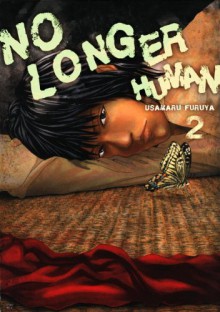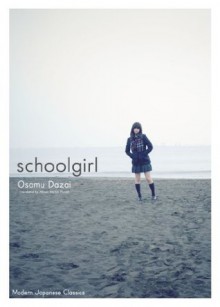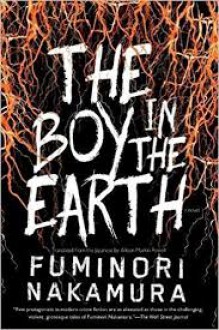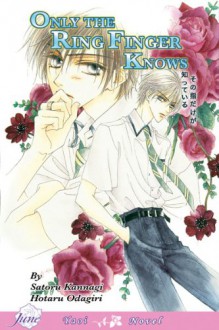
[Content warnings: this volume includes on-page sex, and there’s a deliberately disturbing sequence in which a children’s manga character is given an enormous penis, has sex, and is then killed and left to be eaten by birds.]
This volume picks up where the previous one left off. Yozo has survived his attempted double suicide with Ageha. The idea of being punished for her death gives him the sense of purpose he craves, but this is snatched from his hands by the police’s decision to set him free and deliver him to the hands of one of his family’s former servants. Yozo blames his father and stews in his own bitterness while essentially living trapped in the former servant’s home.
Yozo manages to escape one prison only to end up in another. Having no other place to go, he ends up living with his friend Horiki's editor, Shizuko. She dotes on him, seeing his pretty face and nothing else. Although outwardly things appear to be going well for Yozo - he now has a roof over his head, a job as a children’s manga artist, and somebody willing to fork over money anytime he wants to go out and buy booze - he feels stifled by Shizuko’s love and her young daughter’s wish for him to be her real father.
By the end of the volume, Yozo has finally found something like happiness. Will it last? Ha ha, of course not.
I think I’ve finally accepted that this isn’t so much an adaptation of Osamu Dazai’s No Longer Human as it is Dazai’s plot and Usamaru Furuya’s Yozo. Although I still end up comparing the two works a lot in this review. Sorry.
My interpretation of the original book and Furuya’s interpretation continue to differ wildly. Furuya’s Yozo is less sympathetic than Dazai’s (who, granted, tended to be pretty terrible), more likely to blame his father for his own problems, and more calculating. Rather than just sort of being taken in by Shizuko, he does his best to manipulate her into offering to take him in, making use of both his good looks and his abilities in bed.
Yozo isn’t a likeable guy. He’s prone to self-destructive behavior, doesn’t think things through, and then wallows in bitterness rather than accept the consequences. He was even more disgusting than Book Yozo when it came to life with Shizuko and Shiori. I remember Book Shizuko putting up with more from Yozo than I thought was wise, but I’m pretty sure the undressing scene was entirely invented by Furuya, and it was awful. The inclusion of Dazai’s “Papa is...too good of a person” scene afterward was bizarre, since both Shizuko and Shiori had just witnessed Yozo being very much not a good person.
In some ways, I’d argue that Yozo’s brief period of time with Mama at the bar was probably the best period of his life, even better than his “romance” with Yoshi at the end of the volume - this was vastly different from how I felt while reading the original book, by the way. I think Furuya’s Mama was a more fascinating character than Dazai’s.
Mama was an older woman who, for some bizarre reason, was fond of Yozo but also well aware of his problems. She didn’t expect anything from him, and her happiness certainly didn’t depend on him. There was one scene I particularly liked that I think Furuya invented (I don’t recall it being in the original book). Mama was acting as Yozo’s nude model and asked to see Yozo’s drawing of her. She accused him of being too kind and told him to redo the drawing, this time including her wrinkles. I loved that she not only refused to accept flattery from Yozo, but also that she seemed to genuinely love her own body. Here’s her description of her wrinkles: “These are my growth rings. Each stands for a love and a parting.” I don’t recall having any favorite characters in Dazai’s No Longer Human, but Furuya's Mama was wonderful.
Had Furuya broken free from the constraints of writing an adaptation, I imagine his Yozo could have stayed with Mama long enough to finally gain something resembling emotional maturity. Or maybe she'd have eventually gotten tired of him and tossed him out. At any rate, the story moved on and continued to follow Dazai’s original plot. This was another instance where I felt that Furuya’s changes to the original story were an improvement upon the original. Furuya’s Yozo was younger than Dazai’s Yozo, which meant that his Yozo was also closer in age (only 20) to the
cigarette shop girl Yozo fell in love with, Yoshino Asai (18). It was still a terrible idea for her to agree to marry him, considering he was drunk almost every time she saw him, but Furuya’s Yozo and Yoshino worked better for me than Dazai’s.
As happy as he seems to be by the end of the volume, this series is pretty upfront about the fact that things do not end well for Yozo. If I hadn’t already read the book, and if it were just bad things happening to Yozo, I might be tempted to read on. However, I’m going to stop here.
Yoshino’s a sweet girl and, despite her terrible taste in guys, doesn’t deserve what happens next. I don’t particularly want to read it, and so I won’t.
I prefer main characters who inspire me to root for them, or who at least interest me. Furuya's Yozo, a loser who hurts and/or drags down most of the people around him, doesn’t appeal to me. That said, I did think this volume was better than the first.
(Original review posted on A Library Girl's Familiar Diversions.)

 Log in with Facebook
Log in with Facebook 













